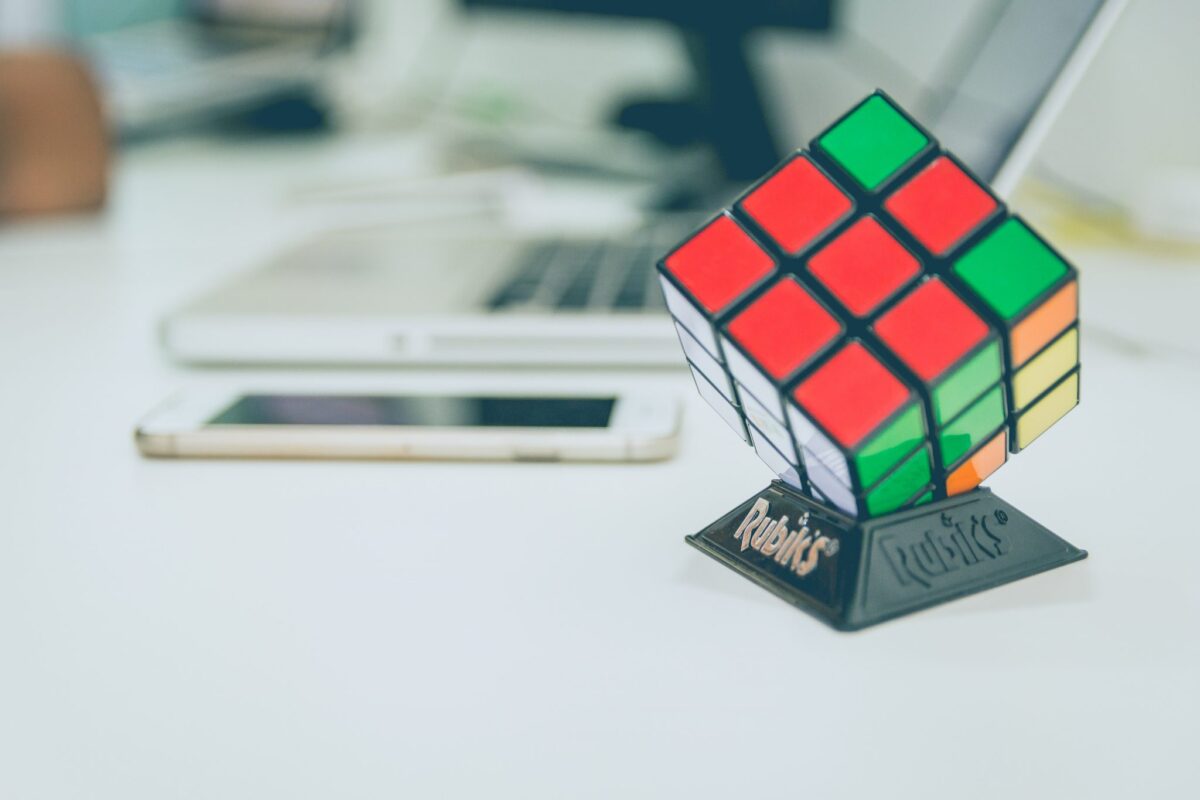
Brain Gym: 16 Activities That Will Help Your Brain Stay Younger
Brain Gym for a healthy mind. A few years ago, we started to learn about the importance of training our brains. Today we know that in order to enjoy life to the fullest, our brain needs to be in shape as well. Find out the 16 brain gym exercises that will help your brain health.

Life expectancy has risen, and as we age, our brain starts deteriorating. A few good habits can help slow down cognitive aging and help keep the human brain in shape. In this article, we’ll talk to you about different brain gym strategies that will help you build new neural connections and boost your cognitive reserve. Lifestyle and our habits play an important role in the physical changes that our brains undergo. The sooner you start training your brain, the longer it will stay in shape. Sign up for your brain gym!

CogniFit Cognitive Brain Training adapts to your specific cognitive needs. Train your cognitive skills with this popular tool.
Is it really possible to improve a specific cognitive skill by training with a brain gym routine? Sometimes you may find yourself wondering if a brain gym routine will actually make it possible to improve our memory, planning, spatial orientation, processing speed, reasoning, creativity, etc. While there isn’t any magic recipe to keep cognitive aging at bay, you can start some exercises to slow it down and improve cognitive reserve. Take your brain seriously and try some of the brain gym exercises that we have below.
Brain Gym can your brain plasticity. The brain has the amazing ability to adapt and change depending on our experiences. Brain plasticity is what makes this adaptation easy, and is what allows us to help mold and adapt our brains to different circumstances or surroundings.
There is one notable type of brain plasticity, called functional compensatory plasticity, that causes a small group of elderly people to achieve almost the same amount or higher cognitive activity than their younger counterparts, despite their age. If we think of the average aging individual, we can expect their cognition to slowly decline as they age. However, in the case of functional compensatory plasticity, the brain actually compensates for the lack of cognitive activity, ultimately activating more brain parts than others of their own age or supposed cognitive state.
Brain gyms help the brain adapt, which we have shown is an essential part to brain health, especially as we age. Changing some simple habits and practicing mentally stimulating activities can help keep the brain active which makes it easier for the brain to create neurons and connections. Take a look at our suggestions and put them into action.
Brain Gym: 10 ways to keep your brain sharp
Exercising these powerful cognitive skills helps regenerate neural connections. Brain gyms can help slow down cognitive decline, which can delay the effects of neurodegenerative effects.
1. Brain gym while you Travel
Travelling stimulates our brains, exposes to new cultures and languages, and helps us learn about the history of a new place. According to a study, having contact with different cultures gives us the ability to learn about different cultures, which helps improve creativity and has important cognitive benefits.
Brain Gym: If you have the resources to travel, do it! Visit new places, emerge yourself in the culture, and learn from the natives. If you can’t travel, make an effort to surround yourself with different cultures and people, and visit new places right in your own city.
2. Brain gym while you Listen to music
Listening to music can be a great activity because music is a powerful stimulus for our brains. Certain studies have shown how listening to music activates the transmission of information between neurons, our ability to learn, and our memory. Listening to music can also slow neurodegenerative processes (this effect was only present in those who were familiar with music).
Listening to music can also positively affect our mood and activate almost all of our brain, which makes it a great way to stimulate the brain.
Brain Gym: You can add music to so many parts of your day. Turn on the radio when you’re cooking or driving in the car. Play your favorite “cardio” or “pump-up” playlist when you’re at the gym… and remember, it’s never too late to learn how to play an instrument! There are tons of video tutorials on YouTube that can help you get started.
3. Brain gym while enjoying nature
The best gym is being in nature. It helps us disconnect from our daily routines and obligations, and reduces stress and anxiety. According to this study, being in nature, whether it be out at a park or seeing trees from the window, helps reduce attentional fatigue. Living in areas with gardens or trees improves attention and inhibits our impulses. Being in nature also gets us moving and helps us increase the amount of physical exercise we do.
Brain Gym: Being in nature is good for our health and well-being. You don’t need to go live in the countryside to get these benefits- talking away in green areas, or even hanging some pictures of nature, can give us some of these benefits. Try to get away on the weekend and go to the mountain or beach. Find a great hiking route and make it a weekend activity. You’ll get some exercise and it’s a great brain gym!
4. Write things by hand and train your brain
Take handwritten notes rather than typing on a computer or tablet. Writing by hand is a brain gym exercise because it helps boost memory and learning, according to this study. Writing also helps us process and integrate learned information.
Brain Gym: Leave your laptop at home and get yourself a notebook. You can also think about getting a tablet that allows you to write and later turns your words into text.
5. Brain gym: Physical exercise
According to many studies like this one, doing and enjoying exercise created new neurons within our brain, improves learning, cognitive performance, and boosts neuroplasticity. A recent study established that starting physical exercise when there are already signs of dementia might not be that a beneficiary as starting while being completely healthy. Therefore, you should start exercising as soon as possible.
Brain Gym: According to studies, aerobic exercise is the best for us. Get out and run, dance, swim, skate, or even just walk around. Getting started can be difficult, but just think about the pay-off!

Brain gym and exercise
6. Brain gym: Keep your work area clean and organized
A recent study has shown that doing work that doesn’t challenge your brain, as well as working in an untidy environment, can actually cause damage to your brain health in the long-run.
Brain Gym: A clean work environment makes us feel calm, which allows our brain to work better. Throw out papers and things that you don’t need. Clean up your desk and the space around you.
7. Learn a language and exercise your brain
According to a study, speaking two or more languages helps protect from cognitive deterioration. The study discovered that bilingual people had a higher IQ and received higher points in the cognitive tests compared to others in their age group. This can happen even after learning a language as an adult.
Brain Gym: Sign up for a class in French or Spanish or Portuguese or any other language you’ve ever thought about learning! Try to watch movies in their original languages (with or without subtitles), you’ll start to pick up the sounds and your brain will get a great workout. Today, we have access to great resources online, all it takes is a little searching!
8. Brain gym: Sleep
According to a study, sleeping too much or too little is associated with cognitive aging. As an adult, it has been shown that less than 6 or more than 8 hours of sleep leads to worse cognitive scores as a consequence of premature aging in the brain.
The right amount of sleep is vital for the proper function of our bodies, as well as our well-being. Both sleeping too little and sleeping too much can have negative effects on cognitive performance, response time, recognizing errors, and attention.
Brain Gym: Try to keep an adequate sleep schedule by creating a routine. Try to go to sleep and wake up everyday at the same time. If your one of those people who tends to sleep too little, try going to bed a little earlier over time. Put your phone, TV, computer, etc. away at least 30 minutes before bedtime to reduce any symptoms of technological insomnia. Make sure your room is a comfortable temperature, there’s not too much light or sound coming in, and that your room is clean and ready to be slept in. Doing this can even help you become a morning person!
9. Brain Gym: Read
People who don’t read a lot have been shown to have lower cognitive performance compared to avid readers, according to a study. Those who don’t read often receive lower scores in processing speed, attention, language, and abstract processing.
According to researchers, this low performance in subjects who read little affects their brain’s ability to adapt after suffering from brain damage. More highly educated people use their brain’s resources to compensate for the cognitive deterioration due to aging. In others words, they have a higher level of functional compensatory plasticity, as we mentioned before. This can be applied the same was for people who read often.
Brain Gym: If you like to read, you’ve got it pretty easy. If you don’t like reading and it doesn’t appeal to do, don’t worry! There are tons of different genres to try out. You’ll find that some things are easier to read, like graphic novels. You can read magazines, newspapers, etc. about anything you like, and you’ll still get all the benefits of reading. It’s just a matter of keeping your brain active.
10. Brain gym: Practice yoga and meditation
Meditation can have long-term changes in your brain, according to this study. People who have been meditating for years have more gyri in the (ridges in the brain that are used in quickly processing information). This is also another proof of neuroplasticity, as our brain can adapt and change depending on our experiences.
According to another study, practicing yoga for 20 minutes improves speed and precision in working memory and inhibitory control (the ability to inhibit behavior when it’s necessary) tests. These measurements are associated with the ability to pay attention, and hold on to and use new information.
Yoga and meditation help us use our mental resources more efficiently, and helps us reduce stress and anxiety, which improves our performance.
Brain Gym: Meditation and yoga are “in” right now, so it shouldn’t be hard to find classes and get started. If you don’t want to go to a class, there are tons of instructors on YouTube to show you how to meditate and do yoga, without having to leave the house.
11. Brain gym: Eat well and avoid drugs
What we eat affects our brains. Eating well helps keep our brains young and prevents cognitive decline. We already know that there are “superfoods” can work together to help keep our bodies healthy. However, a diet of varied fruits, vegetables, beans, grains, and few processed foods, can also greatly improve our overall health. A healthy diet doesn’t only help prevent a large number of diseases caused by diet, but it also helps slow down physical and cognitive aging. Brain Gym comes also from the consumption of different nutrients. Watch below to discover how food affects your brain.
Alcohol, tobacco, and other drugs all contribute to an increased risk of suffering from different types of diseases and contributes to premature aging.
Brain Gym: If you want to learn how to eat well, you should talk to a nutritionist or doctor who can best guide you to the best diet for you. Don’t trust “miracle diets”, they don’t work and can be dangerous for your health. Choose fruits and vegetables over sweets and whole grains over white bread. Keep an eye on how much sugar and fat your eating, and cut out as much alcohol as possible. It can be hard to get started, but ask for stop smoking tips if you need it!
12. Brain Gym: Control your stress levels!
Take care of your mental health! Mental health issues and constantly thinking negatively affects our overall well-being. However, this study has shown that it also affects our brain in the long-term. Having suffered from depression or anxiety disorders increases the risk of having dementia.
Brain Gym: Control your stress levels with some relaxation techniques. Listening to relaxing music helps relieve stress, and practicing yoga or meditation can also help keep stress at bay. If you’re not sure if you have a mental health issue, get in touch with a mental health specialist.
13. Brain Gym: Try new things
New studies have shown that immersing yourself in new hobbies that require some kind of mental challenge helps improve and maintain cognitive function and can help prevent cognitive deterioration.
Brain Gym: Take the time to try to learn new things. It doesn’t matter if you’re good at them or not! The important thing is that you have fun and you challenge your brain. Try learning how to play chess, how to sew, take on a DIY project, draw, write, learn how to play an instrument, etc.
14. Brain Gym: Spend time with your family and friends
Social relationships stimulate our brains, which helps keep it active and younger for longer. Socializing also helps reduce stress and improves our mood, which helps with our overall mental health.
Brain Gym: Spend more time with your loved ones (especially those who transmit positivity), meet new people, make new groups of friends, etc.
15. Brain Gym: Use your brain whenever you can
“Use it or lose it”, kind of. The best way to make sure your brain keeps working the best that it can is to constantly use and challenge it. We have access to new technology, which makes our lives easier, but it also makes our brain lazy. Before, we had to make an effort to learn and remember something. Now, many tasks have become computerized, which makes our brains go on autopilot. Try to give your brain the chance to work before reaching for the calculator or the GPS or Google.
Brain Gym: Try to solve math problems without a calculator, limit how often you use your GPS, and try to remember information on your own.
Memorize a list of words. For example, try to memorize your grocery list before leaving the house and time how long it takes you to remember it.
In the following video, you’ll see how you can help your brain work well and stay young. We can help our brains create new neurons, even as adults. Sandrine Thuret explains how we can help create new neurons.
This post was originally written in Spanish by CogniFit psychologist Andrea Garcia Cerdan












